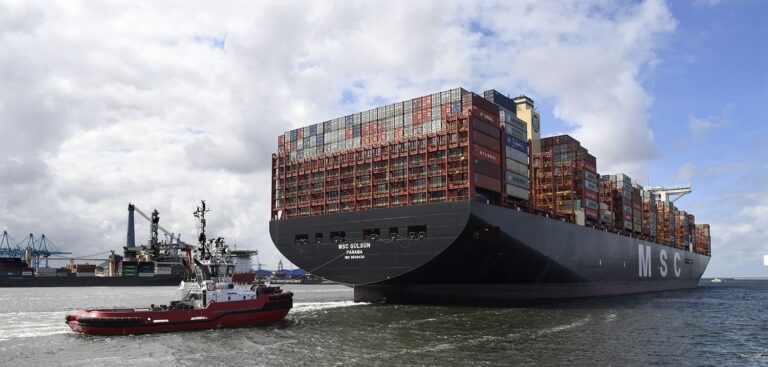A consortium consisting of UK-based Core Power, alongside US energy supplier Southern Company, nuclear energy specialists TerraPower and Orano USA, is looking to develop Molten Salt Reactor (MSR) atomic technology in the USA, with the potential for use in commercial shipping.
The team says it has submitted its application to the US Department of Energy to take part in cost-share risk reduction awards under the Advanced Reactor Demonstration Program, in order to build a prototype MSR as a proof-of-concept for a medium-scale commercial-grade reactor.
The consortium notes that, over the coming decades, as many as 60,000 ships must transition from combustion of fossil fuels to zero-emission propulsion. The UN’s maritime agency IMO has mandated with unanimous approval from 197 countries that shipping must reduce emissions by 50% of the 2008 total, before 2050. This means an actual emission reduction of almost 90%, by 2050. The MSR technology being developed by the consortium could achieve that goal, by powering production of green sustainable fuels for smaller ships and providing onboard electric power for large ships.
Core Power explains that Marine MSRs (m-MSR) use a fluid fuel in the form of very hot fluoride or chloride salt infused with a ‘hot’ fissile material instead of solid fuel rods which are used in conventional pressurized water reactors (PWRs). They have no moving parts, operate at very high temperatures under only ambient pressure, and can be made small enough to provide ‘micro-grid-scale’ electric power for energy-hungry assets, like large ships. For this reason, Core Power claims they can be mass-manufactured to bring the cost of energy in line with existing fuels.
According to the company, there are several molten salt reactor designs being proposed, which can be divided into two categories: fast-spectrum reactors, which are best operated with chloride salts, and thermal-spectrum reactors, which are best operated with fluoride salts.
Fluoride reactors don’t necessarily have to be thermal spectrum, but usually they are, using graphite as a moderator to slow down the high-energy neutrons of fission. Chloride reactors don’t have to be fast spectrum, but they are usually intended to be. Hence, fluoride in general implies thermal spectrum and chloride in general implies fast spectrum.
The company notes that fluoride reactors would be ideally suited to run a thorium fuel cycle (Th232/U233), while chloride reactors are best run using the uranium fuel cycle (U235-8).
Pic: Ries van Wendel de Joode/Port of Rotterdam



